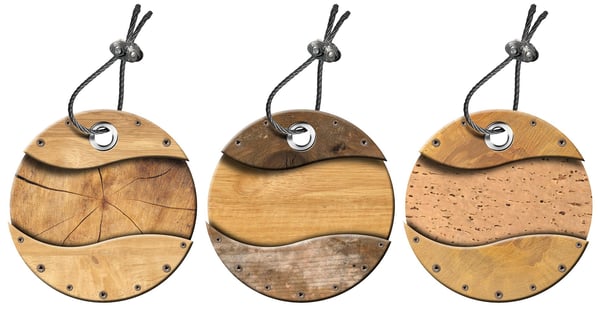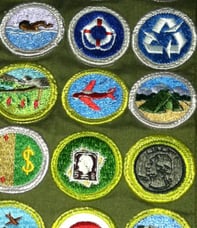Published on
Exploring the Uses of Digital Badges

The following interview is with Daniel Hickey, the Director of Learning Sciences at the School of Education at Indiana University at Bloomington. Hickey was recently awarded a $400,000 grant by the MacArthur Foundation’s Digital Media and Learning Initiative to study how digital badges, a non-traditional mechanism to record and display achievements and accomplishments, could be used to recognize, assess, motivate and evaluate learning. In this interview, Hickey discusses the value he thinks badges will bring to the higher education space and warns educators about challenges badges could face.
1. Could you briefly explain how your project will determine which uses of badges are most appropriate?
These are just an incredibly diverse set of projects. In total, there’s about 30 projects, and some projects with multiple aspects.
What we’re really trying to do is look at how their intended practices that they outlined in their proposals—in the abstract—how those were transformed and changed and perhaps even completely revised when they tried to put those plans into place. In particular what we’re interested in is how projects discover different aspects of the context they’re working in that affect whether or not their ideas are going to work or whether they are appropriate.
The real focus is on how the ideas they had interact with the things in the context that they uncover once they dig in.
2. Do you think badges will have more use as a way to encourage peer learning and social engagement, or as formal assessments of individual accomplishment?
All of the above! This has been a huge and fascinating question and I’m so excited. This divide, this distinction, between informal and formal learning, and individual and social learning has been a focus of my research for all of my career. What make badges so exciting is they can be used for anything. You can use them for very automatic things, for instance if you have a… computer program; well, if somebody turns something in, it’s simple to set it up so that a badge gets awarded, a little badge for a little accomplishment.
Many of the projects are pursuing much more social forms of learning; things that often get overlooked because it’s so easy, when you have a formal test, to undervalue social forms of learning. If you think about, for example, the “like” feature and the “comment” feature on Facebook, in some respects badges are like a combination of that. Like a “like”, most of the feedback distributed is positive. For instance, in my own graduate classes, I had an online component where students were able to give little stamps to their peers and say that they really liked that comment, that comment was really helpful. And I as the instructor can go in each week and review those comments and use those little stamps to identify the comments that the students found most useful. I really quickly and really efficiently and objectively, I think, award a badge for that week to a student. So, it’s still awarded to an individual, but the award is for social activity. …
When you set up a class in Peer-to-Peer University, they did some of the really groundbreaking work… to think through this open class format. We set up a class at Peer-to-Peer University, and you can choose to have the badges awarded automatically or you can chose to have the badges awarded by peers. What people are just beginning to discover about badges is that what happens when peers get together and negotiate whether a badge should be awarded automatically. We’ve never had anything like that before. So this divide between different types of learning, in some respects, may be going away.
3. Can badges be utilized to evaluate program quality?
Absolutely. That’s one of the things that I think a lot of people are just beginning to realize—and this has been a really exciting part of my project…—is that each badge contains information. Those programs have to first negotiate what they’re going to recognize; what forms of learning are of value to them. Then they have to struggle to say, “Well, how are we going to assess that, and assess it in a way that will be generally meaningful?”
Badges are not informal classroom assessments, they’re not formal external tests, they’re kind of in-between. They’re what I would call semi-formal assessments in many cases.
If you, as an educational programmer or instructor, are in fear of just having this big, messy pile of papers that students generated, or artifacts that they created or grades that you assigned, well if you have a database that has a record of every badge that you ever awarded and each of those badges contains eight pieces of information about those badges, and probably half of those pieces of information are hyperlinked out to more information, in many educational situations, this would be a huge advantage in both evaluating programs but also in terms of researching programs. …
The sky’s the limit, I think, in evaluation.
4. Looking into the future; how far away do you think we are to more mainstream use of badges in higher education?
I guess it depends on what we define as mainstream. I know that another Indiana University—Purdue—has launched a formal system. … It really remains to be seen. In my case… it’s about kind of an informal credential certificate program. I think that given that credentials have become kind of mainstream in universities; I predict that badges will become very, very widespread in that context. I was a little skeptical at first, but now that I see how many people are asking and inquiring, I think they will become common. Not everywhere; I don’t think they will replace transcripts, but I think that they will find communities around universities and people who use information will find them really useful.
The analogy I have is LinkedIn. In some communities, LinkedIn and LinkedIn recommendations are very meaningful. If I’m a programmer, getting a recommendation on LinkedIn actually means something. In other disciplines; no, it’s not something people normally do. So I believe there will be pockets within two or three years.
5. Any insights into which industries you think badges will most appeal to?
Certainly anybody having anything to do with web uses. … I certainly think that in technology, that’s where the most likely paths of acceptance will be.
6. Is there anything you would like to add about the future of digital badges and their integration into program evaluation and student evaluation?
I think it’s going to be really interesting to see where it works.
It’s really important that we not make the mistakes that I think some people have made with portfolios where they’ve ended up being a huge amount of work and in the end… this ePortfolio movement, they really tell us more about how explicit your instructions were to the students and how clearly they followed them. But it’s not clear that people really believe the evidence there. Certainly in teacher education, there are some rigorous studies that say that teacher portfolios actually aren’t very accurate or widely used.
It’s important that we learn from that and not force badges into places where they don’t serve a useful purpose.
Author Perspective: Administrator



